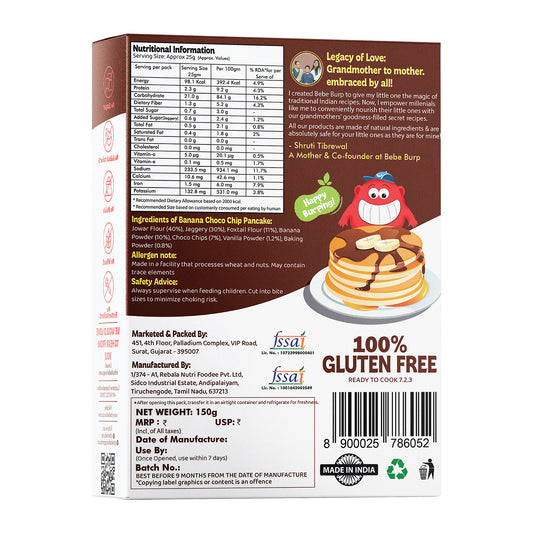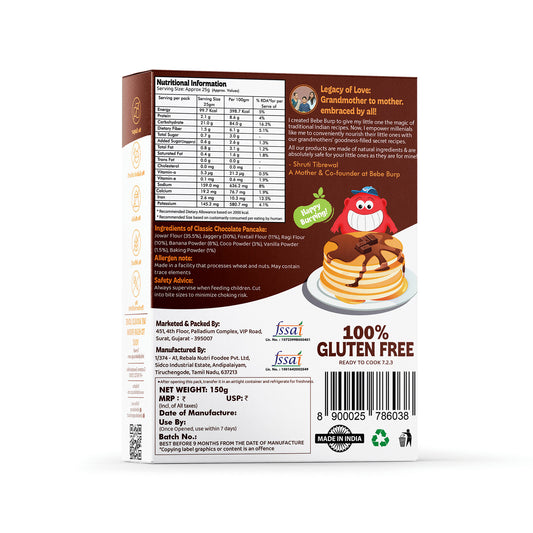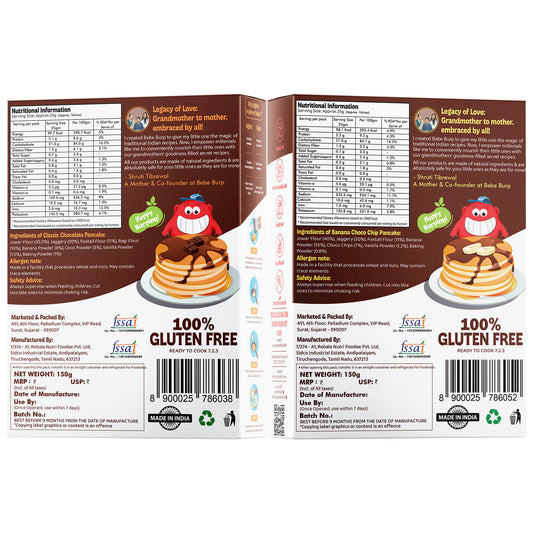A favorite leafy oriental vegetable in Asian kitchens, Asian Vegetable Bok Choy is no longer just a feature in adults' bowls, but is also making its way into babies' bowls too! Suitable for babies from 6 months onwards (once they are ready for solids).
Bok choy is nutritious, mild in taste and easy to digest, which is why it is fast becoming popular as a healthy first food among conscious parents.
In this guide, we will tell you all about bok choy as a baby food, its nutritional value, delicious and baby-friendly recipes, and more.
Whether you are a new parent or just curious to learn new things, you will be surprised to know the baby-friendly aspect of this powerful vegetable!
What is Bok Choy?
Bok choy may also be referred to as Chinese cabbage or their pak choi and is a leafy green vegetable that often finds itself in Asian cooking.
Its thin white stems and dark green lush leaves make bok choy part of the cruciferous vegetable family- alongside broccoli and kale.
Just sweet enough and non-objectionable to cook, it is fast becoming an essential add-on to baby-led weaning and home baby food recipes.
This vegetable is characterized by its multipurpose and mild flavor and can even be used in the sixth month of life when introducing a baby to veggies.
Nutritional Profile of Bok Choy
|
Nutrient |
Amount (per 100g raw) |
Key Benefits |
|
Calories |
~13 kcal |
Low in calories, weight-friendly |
|
Water Content |
~95% |
Helps with hydration |
|
Protein |
1.5 g |
Supports growth and tissue repair |
|
Carbohydrates |
2.2 g |
Gentle energy source |
|
Fiber |
1.0 g |
Aids digestion |
|
Fat |
0.2 g |
Very low in fat |
|
Vitamin A |
2681 IU |
Eye health, immunity, skin |
|
Vitamin C |
45 mg |
Immunity, collagen production |
|
Vitamin K |
45 µg |
Bone strength, blood clotting |
|
Folate (B9) |
66 µg |
Brain development |
|
Vitamin B6 |
0.2 mg |
Metabolism, brain health |
|
Calcium |
105 mg |
Strong bones and teeth |
|
Potassium |
252 mg |
Regulates fluids, blood pressure |
|
Magnesium |
19 mg |
Muscle and nerve function |
|
Iron |
0.8 mg |
Healthy blood cells |
|
Manganese |
0.2 mg |
Bone health, metabolism |
Health Benefits of Bok Choy for Babies
- Promotes Healthy Growth - Bok choy contains protein, calcium, and iron and aids in the creation of strong bones and muscles.
- Immunity Booster -Vitamin C and antioxidants support the immunity of your baby.
- Aids Digestion- Its mild amount of fiber content is helpful in healthy bowel movements.
- Shields the Eyesight - Vitamin A and carotene defend eyesight development.
- Naturally Hydrating- Bok choy has a water content of 95 percent making them naturally hydrating to babies.
How to Introduce Bok Choy to Your Baby's Diet
- 1st Best Age to Start: At about 8 months (or at the time when your baby is ready to advance to textured vegetables).
- How to Cook: Steam prepare, boil or fry in a pan until tender. Babies less than 12 months of age should not be given raw bok choy.
- Puree: Younger babies; finely chopped, or mashed, older babies with self-eating skills.
- Allergy Check: Rare but be sure to always introduce proportionately first then monitor.
Creative Bok Choy Recipes for Babies
Need to turn the bok choy into an entertaining and tasty dish? Read these babies friendly recipes:
- Bok Choy and Apple Puree: Sweet and mild mix that is the best to be served at 6-8 months
- Bok Choy Khichdi: To further enrich moisture with more nutrition add moong dal-bok choy lightly chopped to bok choy khichdi.
- Soft Bok Choy Pancakes: Steamed bok choy is combined with a ragi (or besan)-based batter.
- Bok Choy Folded into Porridge: Mix it in with rice porridge of babies 9 months and up
- Bok Choy and Tofu Mash: Top-up protein to iron deficient vegetarian babies
These are recipes which not only will make your little one enjoy new tastes and textures but also expose him to all the benefits associated with ingesting these goodies.
Addressing Common Concerns About Bok Choy for Babies
Q1) Is it ok for a baby to eat bok choy?
Ans: Yes, in moderation, usually fried or steamed, bok choy is a safe and good choice when it comes to infants on solid foods.
Q2) Does bok choy create gastric problems?
Ans: It is a cruciferous vegetable and as a result may result in mild gas in babies. Begin with little amounts and watch the reactions.
Q3) Is organic bok choy?
Ans: Bok choy is served to babies and to cut down on pesticide exposure, it is best to buy organic, and thoroughly rinse regardless.
Q4) How many times should I give it?
Ans: It can be given 2-3 times a week, which will be enough to experience its benefits but will not put your baby under pressure on the digestive system.
Conclusion
Bok choy may not be the most popular baby vegetable, but it has a host of nutrients that will foster the good development of a baby.
Bok choy is a superfood; whether you add it to finger foods or mix it up in a high-nutrition puree, it is something you need to learn about.
Begin with introducing your little one to the world of this Asian green, start small, and start experimenting with recipes, and your babe will love this delicious green!
🛒 Related Products from Bebe Burp









